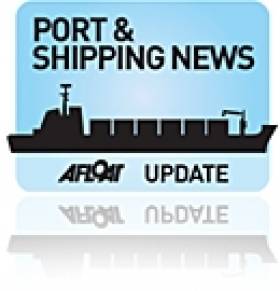Displaying items by tag: Weighing Containers
#WeighingContainers - All “shippers” as from July 2016 must declare to the carrier in advance the verified weight of packed containers.
The European Sea Port Organisation (ESPO) has joined the European organisations representing Shippers, Freight Forwarders and Terminal Operators in the call on national authorities to avoid any disruption in the logistics chain and to take action in coordination to preserve level playing field.
To ensure that the implementation of the new legal requirements does not create competition distortion through a patchwork of varying national measures, Member States should pursue a coordinated approach, taking into consideration the national guidelines of other Member States when deciding on national rules. Commonly accepted guidelines between supply chain actors and national authorities could minimise distortion of competition and ensure smooth functioning of the SOLAS requirements.
Being only two months away from the entry into force of the SOLAS convention, Member States should bring clarity as soon as possible.
In November 2014, the International Maritime Organisation (IMO) agreed upon rules for the mandatory weighing of all sea-bound containers to be loaded on a vessel. The undersigned organisations accept these rules and are committed to working towards the successful implementation of the new legal obligation.
#WeighingContainers –The European Sea Ports Organisation (ESPO) has welcomed recent decision of IMO's Maritime Safety Committee (MSC) by which it is the shipper's responsibility to submit the verified gross weight of containers before loading onto the ships.
The verification of the containers' weight can indeed play an important role in enhancing safety in maritime transport and the whole transport chain. Ports confirm that misdeclarations of container weight occur and entail safety risks.
ESPO hopes however that the implementation of this new amendment to the Safety of Life at Sea (SOLAS) Regulation in EU and/or national legislation, further clarifies the shippers' responsibility and avoids that in the end this responsibility is transferred to ports and terminal operators. The weighing should take place before entering the port area, and preferably by the shippers at the place of origin.
"We do recognise the importance of knowing the exact weight of containers not only for maritime transport but throughout the whole transport chain. We should look for the most practical solution for all players in the transport chain. But we should at all times avoid that this weighing operation burdens the handling activities in the port and increases the congestion in the port. This could happen if mis-declared container weights are only being detected at a late stage, in the port or port terminal area", said ESPO's Secretary General, Isabelle Ryckbost.
On its 93rd session last month, the IMO's MSC approved the amendment of SOLAS Regulation VI-2 regarding Mandatory Weighing of Gross Mass of Containers before loading onto ships. The committee also adopted relevant guidelines regarding the verified gross mass of a container carrying cargo.
The amended rule requires shippers to submit verified gross weight of containers before loading onto ships and sufficiently in advance to be used in the preparation of the ship stowage plan. Without such document, relevant export containers shall not be loaded onto ships.
The amendment and its guidelines will be effective by July 2016, subject of final adoption by MSC 94th session in November 2014.

























































